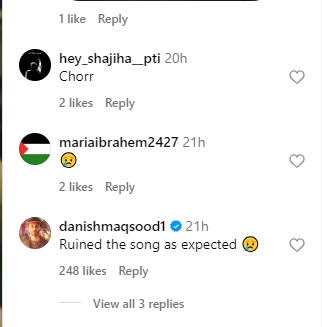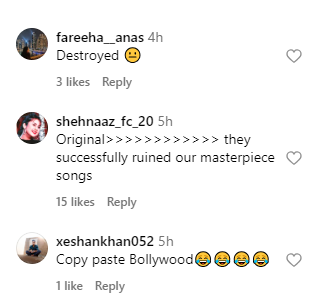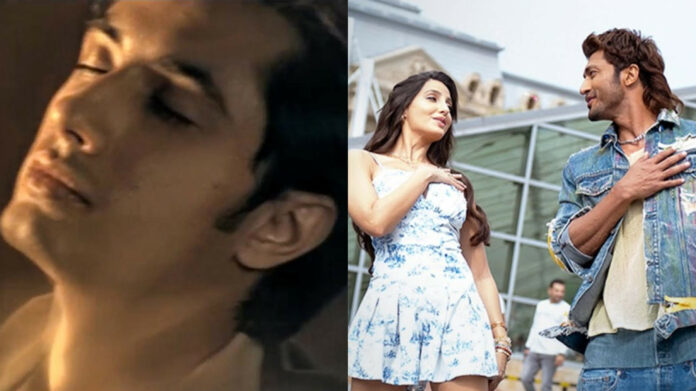Bollywood, known for its vibrant and diverse music industry, has often faced criticism for its tendency to borrow heavily from other cultures, especially Pakistan. In recent years, the spotlight has turned towards Bollywood’s apparent obsession with copying Pakistani music. One of the notable instances that has fueled this debate once again, very recently, was the remake of Coke Studio’s ‘Pasoori’ and now Ali Zafar’s ‘Jhoom,’ raising questions about the originality and creative integrity within the Indian film industry.
The Jhoom Remake
Adding fuel to the fire, Bollywood has now further stoked the controversy by remaking another popular, ‘Jhoom’, a cult classic by Ali Zafar. The song’s Bollywood rendition with the likes of Nora Fatehi and Vidyut Jammwal starring in the music video, the new lyrics written by Gurpreet Saini and sung by Vishal Mishra and Shreya Ghoshal have similarly faced scepticism. Fans of the original ‘Jhoom’ have questioned the need for a remake when the original already enjoyed widespread acclaim.
The underlying issue in both instances is not merely the act of remaking but the lack of acknowledgement and collaboration with the original creators. Although the song mentions Ali Zafar as the OG behind the song, the audience is not happy with the treatment the remake has received.
The comments have gone viral like wildfire and they still seem to be flooding the internet, left, right and centre.




The Pasoori Controversy
Last year, Bollywood stirred up controversy with the release of the film ‘Satya Prem Ki Katha‘ which featured a revamped version of Coke Studio‘s hit song ‘Pasoori.” The original, produced by Pakistani musicians Bilal Maqsood and Faisal Kapadia, was widely praised for its unique blend of traditional and contemporary music elements. However, Bollywood’s decision to recreate the song sparked a wave of criticism, with many accusing the industry of lacking creativity and resorting to plagiarism.
While the remake retained the catchy beats and soulful melodies of the original, it faced backlash for diluting the authenticity that made ‘Pasoori’ a cultural phenomenon. Critics argued that Bollywood missed an opportunity to collaborate with Pakistani artists or explore new avenues rather than replicating an already successful song.
Conclusion
The public’s response to Bollywood’s remake of Ali Zafar’s ‘Jhoom‘ has been overwhelmingly negative, highlighting the challenges and pitfalls that come with recreating iconic songs. Nobody messes with Ali Zafar, says the Pakistani audience. The widespread disappointment reflects not only the emotional attachment audiences on this side of the border have with the original but also the heightened expectations placed on remakes to capture the essence and magic of the original composition.
This public reaction serves as a reminder to the film industry of the delicate balance required when venturing into the realm of remakes, urging filmmakers to approach such projects with care, creativity, and a deep understanding of audience sentiments. Ultimately, the public’s disappointment underscores the need for Bollywood to prioritize quality over quantity in its pursuit of remaking timeless classics.




